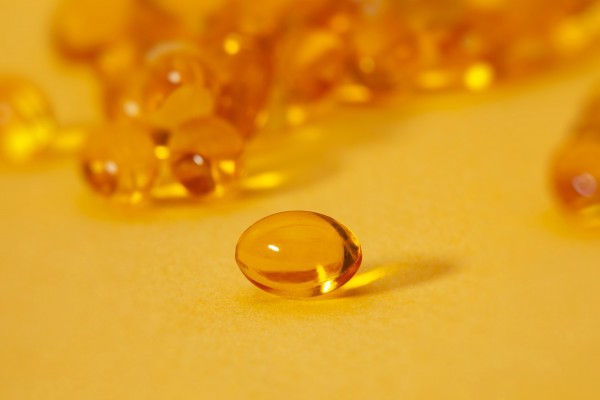Buying a standard vitamin-mineral complex in a pharmacy is not always the right decision, because such preparations, although they contain almost all vitamins and minerals, do not take into account the characteristics of the female body, age and individual need for certain substances. The female body has a complex hormonal “tuning” and at different times the need for certain vitamins and microelements increases. And if a woman leads an active lifestyle and is engaged in strength training, then there may be a need for higher dosages - vitamin packs for women.

How to choose vitamins for women?
What vitamins can be considered "female"?
Naturally, the female body (like the male body) needs absolutely all vitamins and minerals, but these should be given special attention and taken depending on your age, health status and phase of the menstrual cycle.
Vitamin B6. It is rightfully considered the most “feminine” vitamin, because reproductive function depends on its presence. In addition, this vitamin is an excellent tool to combat stress and depression. The recommended daily allowance is 1.8-2 mg.
Vitamin B12. Participates in the metabolism and utilization of fats. The need for this vitamin especially increases during the period of fat burning. The recommended daily allowance is 3 mg.
Vitamin Sun (B9). Folic acid is indispensable for the female body, because without it, iron simply will not be absorbed. The recommended daily allowance is 200-400 mcg.
Vitamin B1. Its reception is especially important before the onset of menstruation, as it facilitates the course of premenstrual syndrome. The recommended daily allowance is 1.3 - 1.5 mcg.
Vitamin A. (retinol, beta-carotene). Responsible for the good condition of the skin, normalizes regeneration processes. Its deficiency leads to peeling, dull complexion. The recommended daily allowance is 900-1000 mg.
Vitamin E. An important antioxidant responsible for the beauty, health and youth of the skin, provides strong hair and nails. This vitamin is especially important to take in the second half of the menstrual cycle. The recommended daily allowance is 15 mg.
Vitamin C. Responsible for immunity, protects the body from free radicals and is directly involved in the absorption of iron. The recommended daily allowance is 70-90 mg.
Vitamin K. Increases the ability of blood to clot. With a lack of vitamin K, characteristic dark circles under the eyes are observed. The recommended daily allowance is 120 micrograms.
Vitamin D. Participates in the absorption of calcium and prevents the development of osteoporosis in old age. The recommended daily allowance is 2.5 - 10 mcg.
Vitamin F (F) (omega-3 and omega-6 fatty acids). The importance of these fatty acids can hardly be overestimated, especially for the female body. They normalize lipid metabolism, support and restore reproductive function. The recommended daily allowance is 500-1000 mg.
Iron. Since every month a woman loses a lot of iron with menstrual blood, she needs increased doses of this trace element. Otherwise, there are problems with the level of hemoglobin, chronic fatigue syndrome and the risk of developing a number of diseases increases. The recommended daily allowance is 17-20 mg.
Vitamins and age
In different age periods, the need for some vitamins increases, while in others it decreases.
From 20 to 30 years old. This is the most active period in a woman's life, which requires a constant struggle with stress and maintaining reproductive function. During this period, the intake of B vitamins and vitamin E is especially important.
From 30 to 40 years old. This is the period when the first signs of aging appear, and they appear both inside and out. At this time, the female body especially needs antioxidant vitamins - C, A, E.
From 40 to 55 years old. It is worth paying special attention to such vitamins as K and D, as well as additionally taking omega-6 and omega-3 fatty acids.
Vitamins and sports: how to choose vitamins for athletes?
Actively training girls should pay attention to sports vitamins, since not all pharmacy analogues contain adequate dosages to ensure a good exposure of the body and maintain energy at the proper level. The lack of individual vitamins will affect both the state of health and athletic performance. Avitaminosis is a common cause of decreased motivation and depression.
Sports vitamins, in addition to the main components (vitamins and minerals), contain additional ones - phytoestrogens, extracts (extracts) of fruits and berries, as well as herbs that help maintain women's health for women who train.
Considering your individual characteristics and the need for individual vitamins, carefully study the composition and give preference only to trusted manufacturers.
Although vitamins are not a cure, be sure to consult a doctor, he will help you choose vitamins based on your individual characteristics and general health.
Source: https://clavit.com